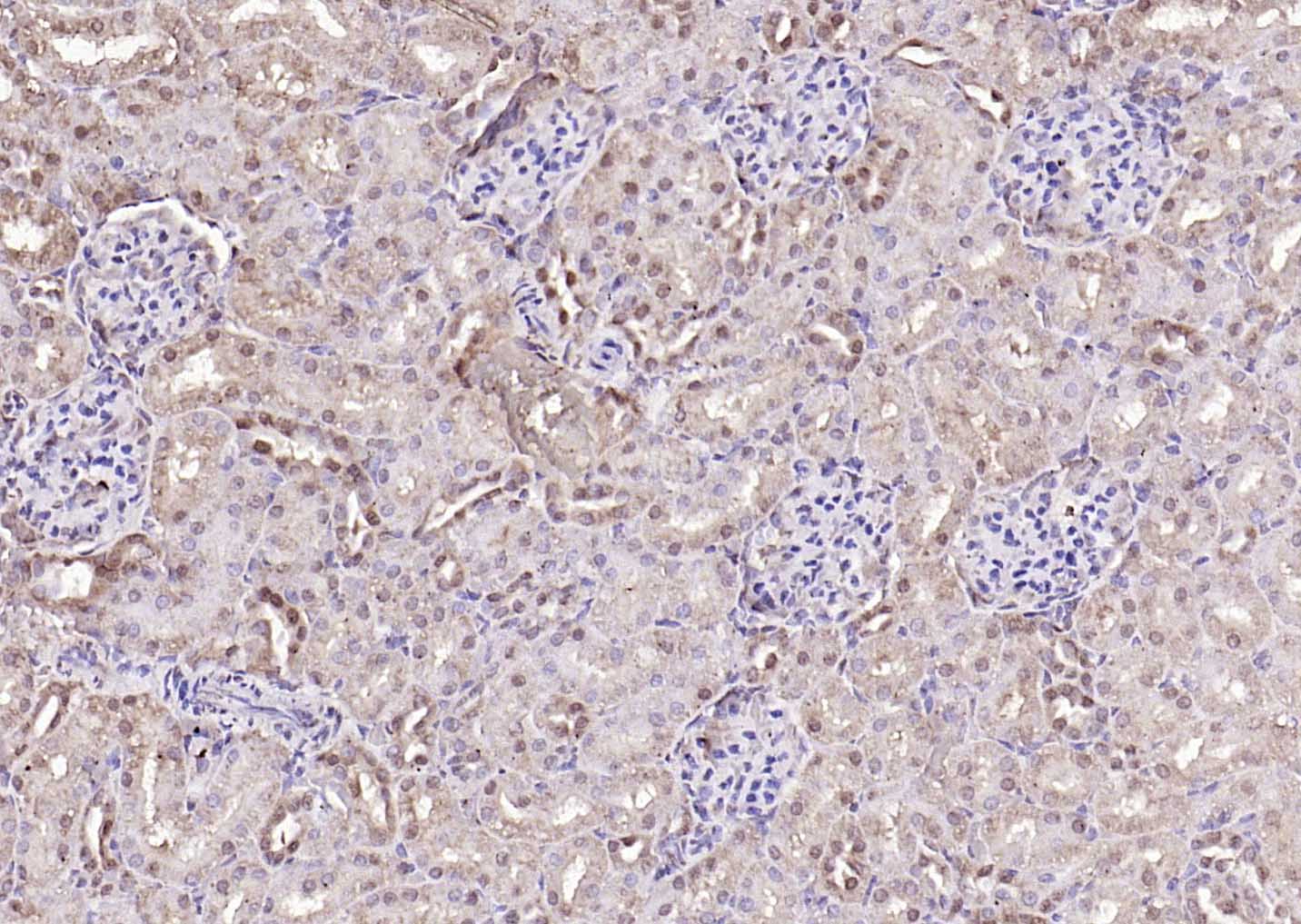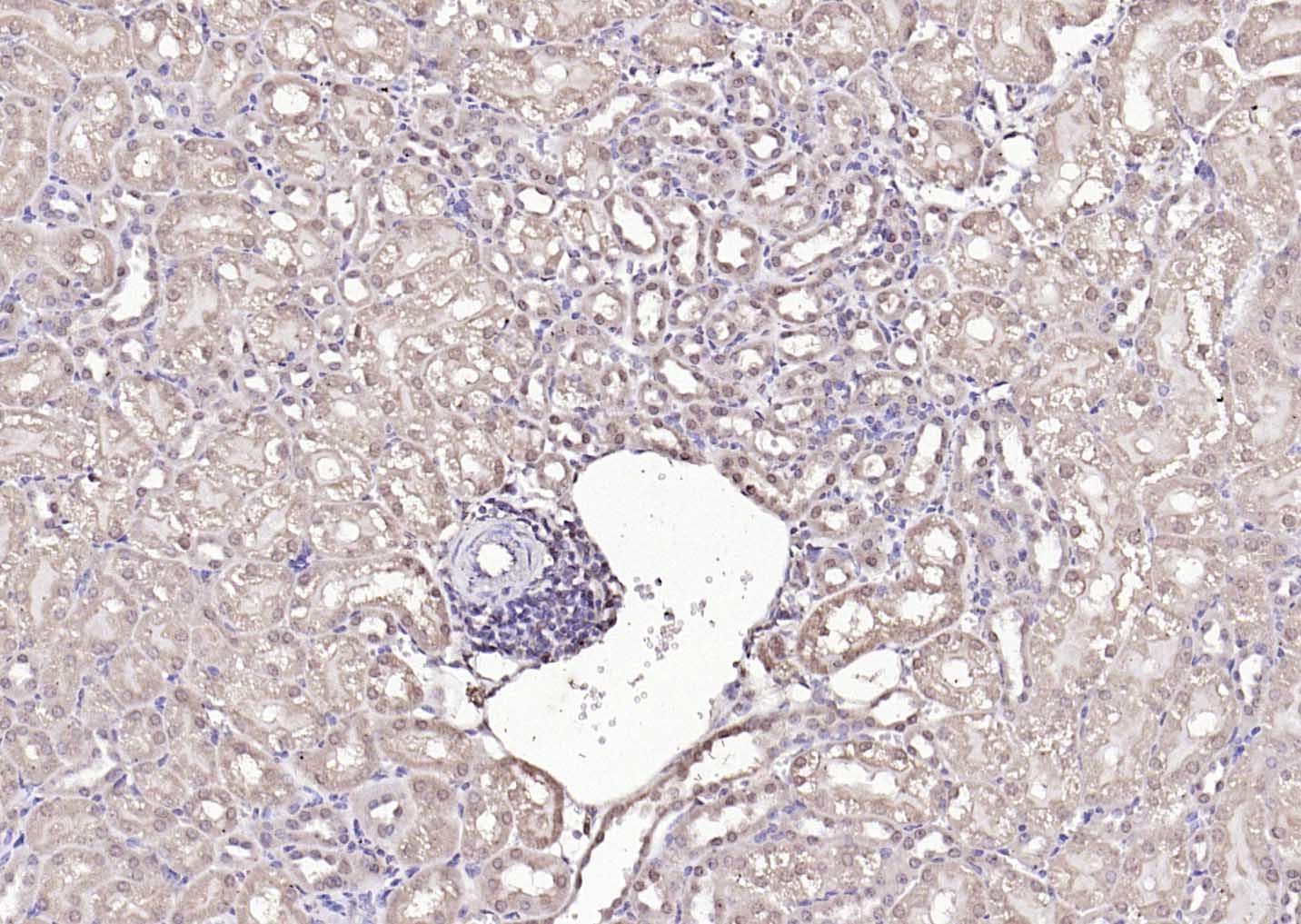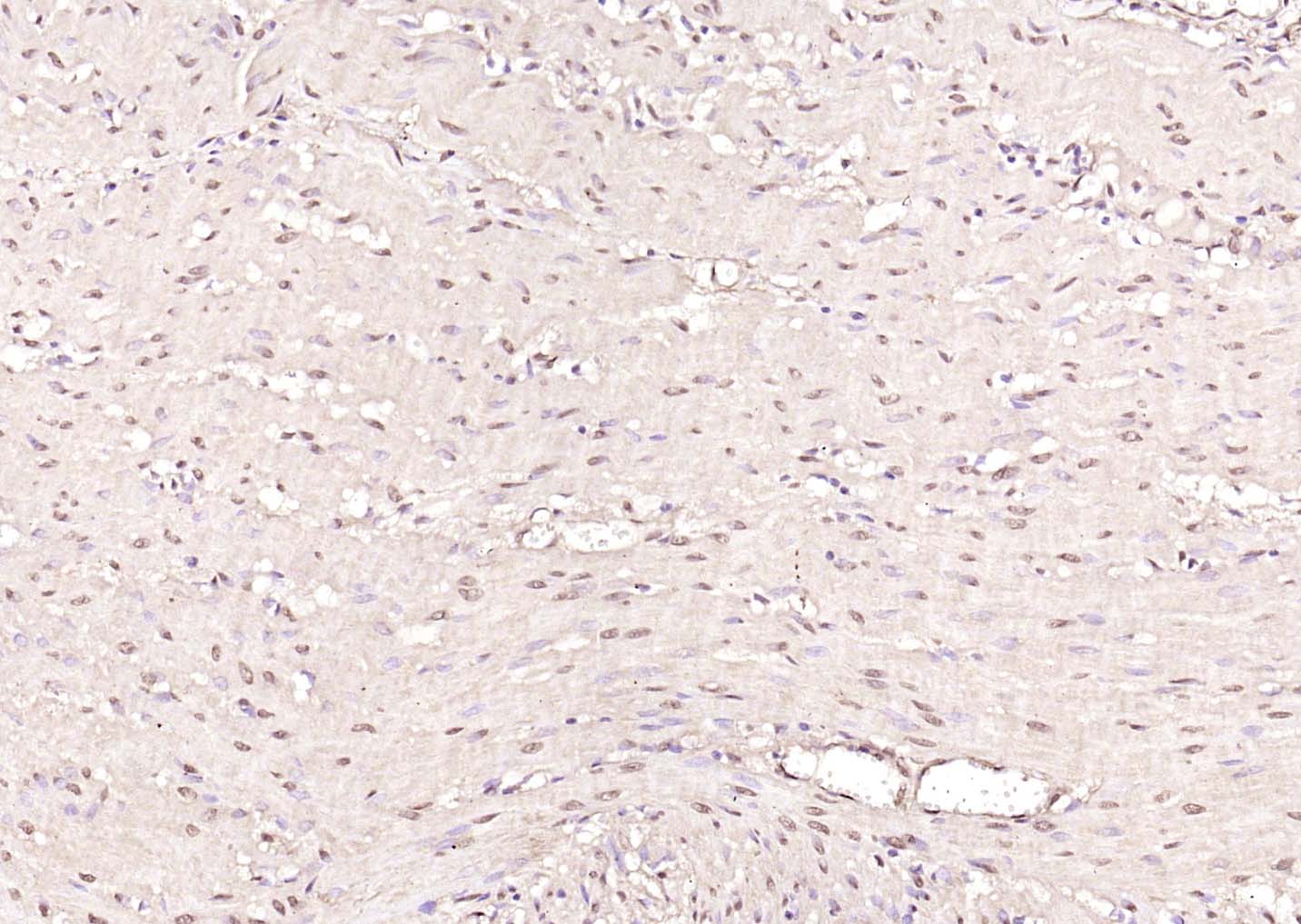
Rabbit Anti-Proteasome 20S alpha 1 antibody
Proteasome subunit alpha type-1, PSMA1,30 kDa prosomal protein, PROS-30, Multicatalytic endopeptidase complex subunit C2, Proteasome component C2, Proteasome nu chain, HC2, NU, PROS30, PSC2, PSA1_HUMAN.
View History [Clear]
Details
Product Name Proteasome 20S alpha 1 Chinese Name 蛋白酶体PSMA1抗体 Alias Proteasome subunit alpha type-1, PSMA1,30 kDa prosomal protein, PROS-30, Multicatalytic endopeptidase complex subunit C2, Proteasome component C2, Proteasome nu chain, HC2, NU, PROS30, PSC2, PSA1_HUMAN. Research Area Cell biology immunology Cyclin Cell differentiation Immunogen Species Rabbit Clonality Polyclonal React Species Human, Mouse, Rat, Applications ELISA=1:5000-10000 IHC-P=1:100-500 IHC-F=1:100-500 IF=1:50-200 (Paraffin sections need antigen repair)
not yet tested in other applications.
optimal dilutions/concentrations should be determined by the end user.Theoretical molecular weight 30kDa Cellular localization The nucleus cytoplasmic Form Liquid Concentration 1mg/ml immunogen KLH conjugated synthetic peptide derived from human Proteasome 20S alpha: 1-100/263 Lsotype IgG Purification affinity purified by Protein A Buffer Solution 0.01M TBS(pH7.4) with 1% BSA, 0.03% Proclin300 and 50% Glycerol. Storage Shipped at 4℃. Store at -20 °C for one year. Avoid repeated freeze/thaw cycles. Attention This product as supplied is intended for research use only, not for use in human, therapeutic or diagnostic applications. PubMed PubMed Product Detail The proteasome is a multicatalytic proteinase complex with a highly ordered ring-shaped 20S core structure. The core structure is composed of 4 rings of 28 non-identical subunits; 2 rings are composed of 7 alpha subunits and 2 rings are composed of 7 beta subunits. Proteasomes are distributed throughout eukaryotic cells at a high concentration and cleave peptides in an ATP/ubiquitin-dependent process in a non-lysosomal pathway. An essential function of a modified proteasome, the immunoproteasome, is the processing of class I MHC peptides. This gene encodes a member of the peptidase T1A family, that is a 20S core alpha subunit. Alternative splicing results in multiple transcript variants encoding distinct isoforms.[provided by RefSeq, Jan 2009]
Function:
Component of the 20S core proteasome complex involved in the proteolytic degradation of most intracellular proteins. This complex plays numerous essential roles within the cell by associating with different regulatory particles. Associated with two 19S regulatory particles, forms the 26S proteasome and thus participates in the ATP-dependent degradation of ubiquitinated proteins. The 26S proteasome plays a key role in the maintenance of protein homeostasis by removing misfolded or damaged proteins that could impair cellular functions, and by removing proteins whose functions are no longer required. Associated with the PA200 or PA28, the 20S proteasome mediates ubiquitin-independent protein degradation. This type of proteolysis is required in several pathways including spermatogenesis (20S-PA200 complex) or generation of a subset of MHC class I-presented antigenic peptides (20S-PA28 complex).
Subunit:
The 26S proteasome consists of a 20S proteasome core and two 19S regulatory subunits. The 20S proteasome core is a barrel-shaped complex made of 28 subunits that are arranged in four stacked rings. The two outer rings are each formed by seven alpha subunits, and the two inner rings are formed by seven beta subunits. The proteolytic activity is exerted by three beta-subunits PSMB5, PSMB6 and PSMB7.
Subcellular Location:
Cytoplasmic and Nuclear.
Tissue Specificity:
Induced in breast cancer tissue (at protein level). Up-regulated in liver tumor tissues.
SWISS:
P25786
Gene ID:
5682
Product Picture
References (0)
No References
Bought notes(bought amounts latest0)
No one bought this product
User Comment(Total0User Comment Num)
- No comment





 +86 571 56623320
+86 571 56623320
 +86 18668110335
+86 18668110335

